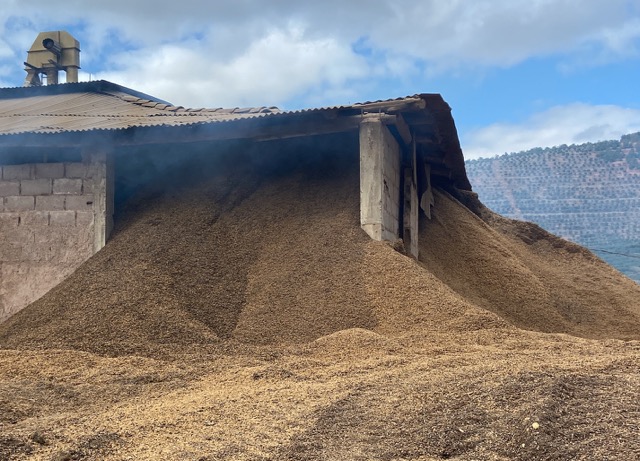At processing level
Agro-processing facilities (e.g., coffee or cocoa dehusking, palm oil or sugar cane extraction) generate large amounts of residues. In the tropics, these biomasses usually have little valorisation schemes and are a logistical – and sometimes environmental – problem for companies. Biochar can be an easy and valuable way to dispose of these residues.
Additionnally, sourcing crops grown with biochar can be of great interest for agro-processing companies, as crop production will increase over time, hence processing volumes. Similarly for product quality.
Biochar can even be a way for processing facilities to secure long-term partnerships with farmers, by establishing a circular, win-win model.
